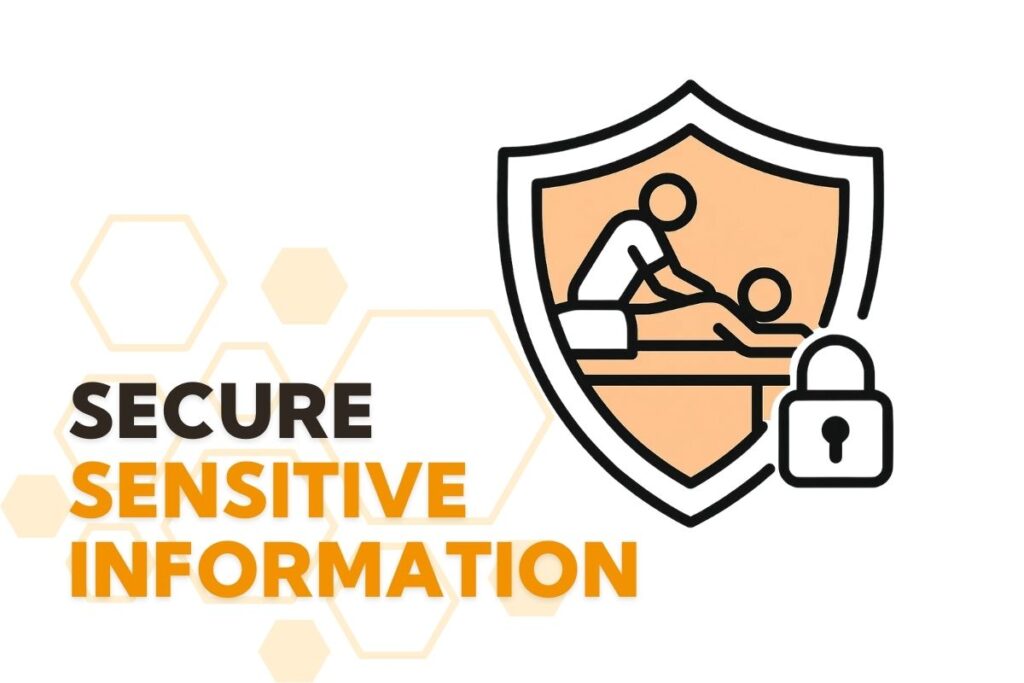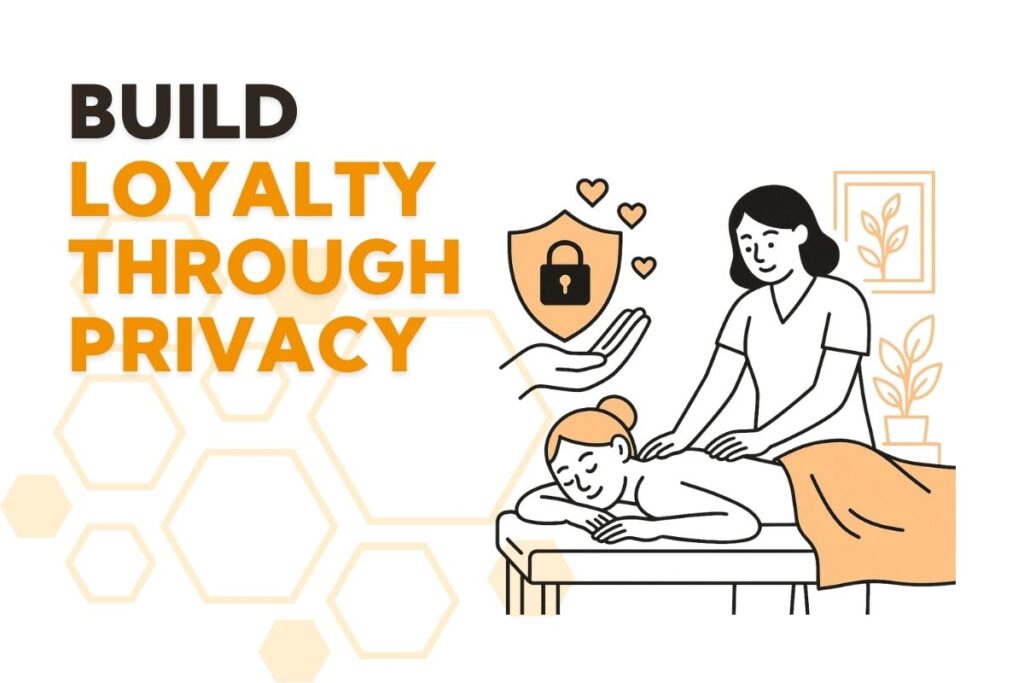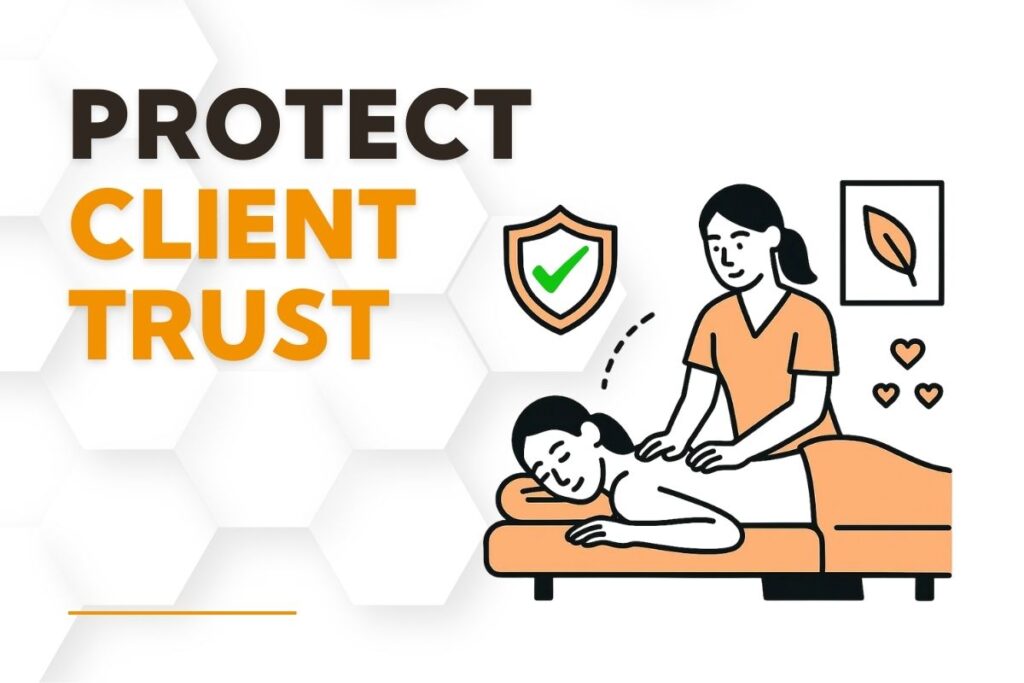Protecting Client Trust in an Increasingly Digital World
Maintaining client confidentiality in massage therapy clinics is more critical than ever in today’s digital landscape. According to the Verizon 2024 Data Breach Investigations Report, 32% of all reported breaches impacted small businesses — a stark reminder that even smaller, service-based clinics are prime targets. In the massage therapy industry, a breach of confidentiality does more than violate privacy laws — it directly threatens the foundation of trust you work so hard to build. Beyond the immediate financial penalties and legal repercussions, reputational damage from a single breach can lead to client attrition, negative online reviews, and long-term loss of business.
Clients entrust massage therapists not only with their physical care but also with deeply personal information, from health histories to personal contact details. Protecting that information is not just a legal obligation; it’s a vital part of delivering a safe, professional experience that clients value and expect. In this guide, you’ll learn practical, proactive steps to safeguard client data, reinforce client trust, and ensure your clinic remains compliant, respected, and rehivsilient in an increasingly security-conscious world.
Why Protecting Client Confidentiality Is Essential
The Real Impact on Your Clinic
Maintaining client confidentiality in massage therapy clinics isn’t just about following rules — it’s about preserving the trust that keeps your business alive. When clients feel safe, they stay loyal, refer others, and contribute to the positive reputation your clinic depends on.
Types of Information You Must Protect
- Client intake forms
- Health history and treatment notes
- Payment and insurance details
- Personal identifiers like birthdays and addresses
Every piece of information your clinic collects must be handled with care to uphold client confidentiality.

Understanding Legal and Ethical Expectations
HIPAA, PHIPA, and PIPEDA: What You Need to Know
Massage clinics must comply with privacy laws like HIPAA in the U.S., PHIPA in Ontario, and PIPEDA across Canada. These laws lay out how to handle personal health information properly.
Ethical Standards in the Industry
Ethics codes from professional massage therapy associations also stress the critical importance of client confidentiality in massage therapy clinics. Violations don’t just risk fines — they can jeopardize your license and career.
Where Clinics Often Fall Short (and How to Fix It)
Staff Training Gaps
Even the best staff can slip up if they aren’t properly trained in confidentiality practices.
Solution: Offer structured onboarding and yearly refreshers to ensure your team understands the importance of confidentiality.
Technology Risks
Outdated systems, unencrypted files, and unsecured Wi-Fi create easy entry points for hackers.
Solution: Invest in up-to-date, encrypted practice management software.
Physical Security Weaknesses
Unlocked file cabinets and open access to sensitive paperwork put client information at risk.
Solution: Use locked storage and control who has access to physical records.
Communication Mistakes
Careless conversations or unsecured emails can lead to unintentional confidentiality breaches.
Solution: Create clear communication guidelines and secure email practices.
Creating a Clinic Culture That Prioritizes Privacy
Develop Written Privacy Policies
- Explain how you collect, store, and protect client data.
- Make policies available for clients to review.
- Update them every year.
Train and Retrain
Keep confidentiality top of mind with regular team meetings, workshops, and practical exercises.
Designate a Privacy Leader
Having a go-to person for all things related to client confidentiality helps maintain consistent standards across your clinic.

Best Practices for Data Security
Securing Digital Records
- Use HIPAA or PHIPA-compliant software.
- Require strong passwords and two-factor authentication.
- Encrypt backups and data storage.
- Regularly update your systems to close security gaps.
Protecting Paper Records
- Lock up all client files.
- Shred old documents properly.
- Restrict access to private areas of your clinic.
Safe Communication Practices
- Never discuss client cases in public spaces.
- Only use secure messaging platforms for client communications.
- Set clear expectations with staff about confidentiality.
Responding Effectively to Data Breaches
Immediate Steps to Take
- Isolate and contain the breach quickly.
- Assess what information was exposed.
- Consult a legal expert specializing in health data.
Informing Clients
Depending on your local laws, you may be legally required to notify affected clients. Honesty and transparency help maintain what trust you can salvage.
Strengthen Your Future Security
After handling a breach, analyze what went wrong and immediately update your systems and protocols to prevent a repeat incident.
Leveraging Technology to Boost Confidentiality
Features to Look For in Software
When selecting management systems, prioritize those with:
- End-to-end encryption
- Secure client portals
- Strict user access controls
- Daily encrypted backups
Using modern technology to automate and protect client records helps ensure you are always compliant and reduces human error.
Set Up Maintenance Schedules
Schedule regular software updates and backups so that protecting client confidentiality in massage therapy clinics becomes a habit, not an afterthought.
Turning Privacy Into a Client Loyalty Strategy
Confidentiality is far more than a legal requirement — it is a powerful trust-builder that shapes how clients feel about your clinic. When clients are confident that their personal information is protected, they are not only more likely to return but also to recommend your services to friends and family, fueling organic growth. Positive reviews, strong word-of-mouth, and lasting client relationships all begin with a foundation of trust.
By making client confidentiality a visible and consistent part of your service promise, you create an environment rooted in care, professionalism, and respect. It’s this level of integrity that truly sets exceptional clinics apart in a crowded marketplace.
FAQs About Client Confidentiality in Massage Therapy Clinics
Aim to review and update policies annually or immediately following any legal changes that affect client information protection.
Include confidentiality training in new hire onboarding and conduct mandatory quarterly refreshers with real-world examples.
Be transparent. Show clients your privacy policy and explain the steps your clinic takes to protect their information.
Encrypted digital systems are often safer because they offer automatic backups, user controls, and easier auditability. However, they must still be properly maintained.


